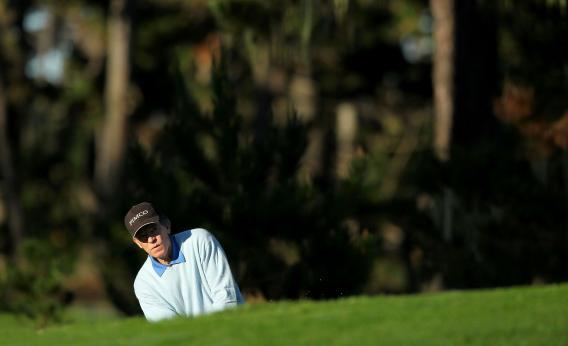Bond manager Bill Gross continues to have odd ideas about interest rates writing in the Washington Post that today’s low rates reflect the fact that “the United States is still considered the ‘cleanest dirty shirt’ in global financial markets” so “whenever an authentic crisis (Lehman Brothers in 2008) or a minor aftershock occurs, investors buy U.S. Treasury bonds, the dollar rises and this country’s reserve-currency status is reaffirmed.” But he warns that unless we make progress on closing the deficit in the next few months “rating services as well as global creditors may begin to desert our ‘clean dirty shirt’ markets and turn to other nations more focused on breaking the long-term habit of debt addiction.”
This clean dirty shirt theory can, however, be pretty easily tested empirically. To wit, a chart of borrowing costs for the governments of Japan, Australia, the United Kingdom, and France:
They are alll on roughly America-esque courses—record lows. Are they all the cleanest dirty shirts in the world? How about Denmark’s low interest rates or Sweden’s? Gross is mistaken. Low interest rates don’t reflect comparative shirt cleanliness issues. The main background factor is expectations of low nominal growth. If people were optimistic about real growth, government borrowing costs would rise as investors seek out solid investment opportunities. And if people were afraid of inflation, government nominal borrowing costs would rise to compensate. But when nominal expectations are anchored at a low level, there’s little to fear from buying low-yield bonds and little to gain from buying alternative instruments.
Gross concludes with the idea that the higher rates he thinks will follow from a failure to address the deficit soon would mean “a long-term secular trend of higher interest rates, a lower dollar and stunted GDP growth would contaminate an already polluted fiscal chemistry lab with a fiscal gap of growing and unacceptably large proportions.” This is close to backwards. A sharply lower dollar would probably raise nominal GDP growth (by bolstering net exports) and therefore cause higher interest rates. That in turn might create a situation in which fiscal consolidation is the best policy, and if we come to that bridge we’ll need to cross it.
